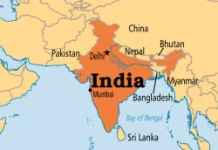
I got an invite from Frank Rennie the other week to contribute a chapter to a book he is thinking of putting together around the subject of the mismatch (or distance) between academic thinking and the potential of new tools. Frank is a big fan of the self-publish sites and has suggested we eschew an academic publisher, and just publish ourselves via Lulu or Blurb.
This got me thinking as to why more academics don’t do this, and still chase the book contract. It certainly isn’t for the money, so it must be for the prestige. This can be broken down into personal and external I think. There is the personal prestige one feels in having a book accepted by a publisher and going through the actual process. One feels like a proper author. There are some practical advantages also – real deadlines to keep you motivated, professional copyediting and some promotion. But these practical advantages are often over-played, for example, as an author you have to suggest most of the avenues for publicity.
The external prestige is probably the greatest factor. This is strongly reinforced in the UK by the REF, which wouldn’t really consider a self-published book, but also by promotion committees and just general esteem amongst colleagues. Self-publishing is seen as rather sordid and the last recourse for the demented author who couldn’t get published anywhere else. It tended to smack of desperation somewhat. But that clearly isn’t the case anymore (if it ever was), with the news that author Barry Eisler turned down a $500K contract to self-publish. Going it alone is seen as a sensible option.
Academic authors are not in the same position as Eisler, but they never were anyway. The return on most academic books won’t buy you a yacht cap, let alone a yacht. But increasingly academics are developing what we might nauseatingly refer to as personal brand. That is they carry sufficient credibility and connections within their own networks to make self-publishing as viable as traditional publishing in terms of generating interest. Add to that they can be in charge of rights and make their books open access. So the question then is what is the aim of academic publishing? Is it to be as widely read as possible or to generate items for your CV?
So why did I go with a publisher? Well, they are doing open access so maybe, you can have a bit of both. And I don’t think I’ve quite shaken that prestige thing.
<Photo by MonsierLui http://www.flickr.com/photos/monsieurlui/316350341/>
This work is licensed under a Creative Commons Attribution-Noncommercial-Share Alike 2.0 UK: England & Wales License.


































Answer: The decision of a publisher to spend money developing, printing, and marketing a book is a “signal” to other academics that a 3rd party considers the content to be of high quality. Because it’s so easy to self-publish, it’s quite difficult (though not impossible) to tell the difference between a properly vetted and researched self-published book and vanity publishing.
Although people on this web site generally do not value the contributions of publishers, many academics understand the “signaling” that a professionally published book can do for their career (for better or worse).
And it’s about “points” you can get that count to get financial on your next project research. It’s not the same to publish your article in Nature than to publish in a professional publication specialized in your research line. It counts in your curriculum, and in academics it’s all about curriculum.
Basically what it adds up to is a cozy cartel between the publishers and the hierarchy of the academic institutions. They benefit from maintaining this complete myth about self publishing and publisher approved publishing based on their arbitrary and subjective views. It generates a lot of money for the insiders and keeps them in control. And in the end, like with a lot of similar organisations, it’s all about control.
There are a lot of reasons why academics prefer to be published traditionally. But first, a thought: instead of using a POD publisher, and paying them to publish your book, why not REALLY self-publish? You have the potential to do a better job of publishing the book, and the upside potential, economically, is a lot better. And, obviously, you have the option of POD printing without paying the middleman, as well as the option to put an offset run out for bid if the numbers warrant it.
Now back to why academics make their choices: they may make more money using a traditional publisher than self-publishing, just as other authors often do. Remember, a publisher usually is able to move more copies than the author can as a self-publisher. And a smaller fraction of the larger number can make for a larger total payday.
And, if you publish on paper, the working capital required for a trade publisher is usually about 95% of your expected annual revenue. For academic presses it may be lower by 15 or 20%, but it’s still a very large piece of change. Not many academics can afford to front that much money for their own publication.
But prestige is still very important to the mix, too. Maybe the most important.
Having had a book published by a worldwide academic publisher, my comment is the same as the one Mark Twain reported from the man who was tarred and feathered and run out of town on a rail: “If it wasn’t for the honour of the thing, he would rather walk.”